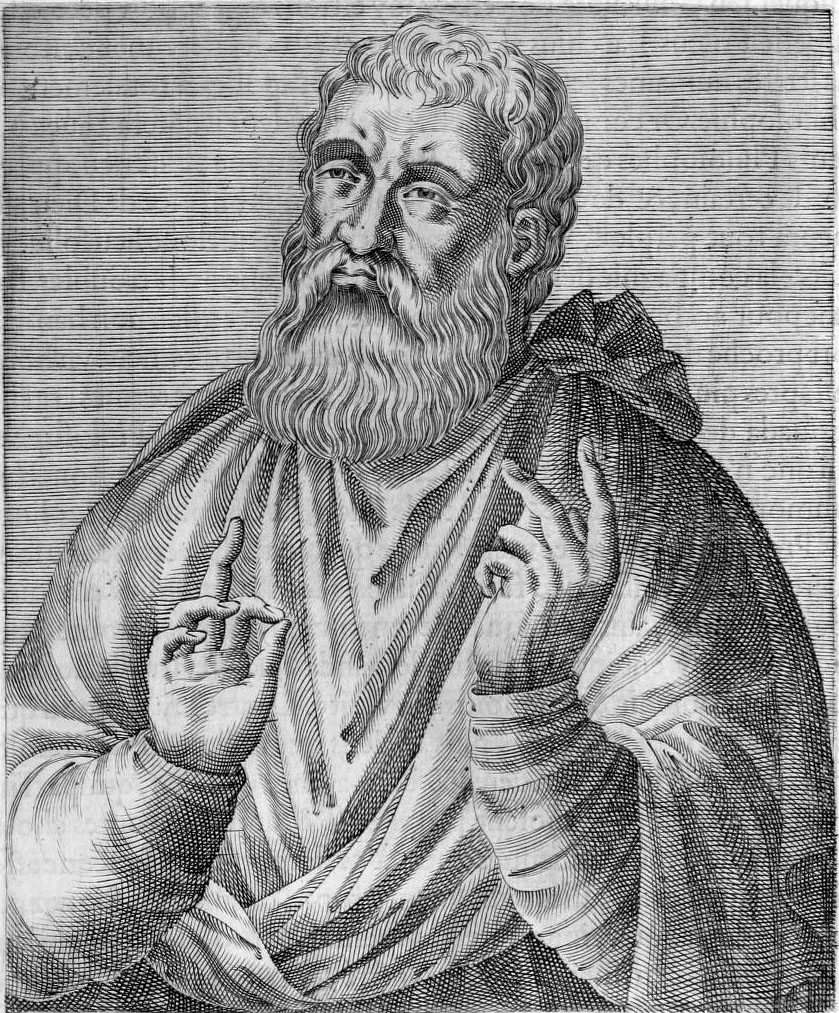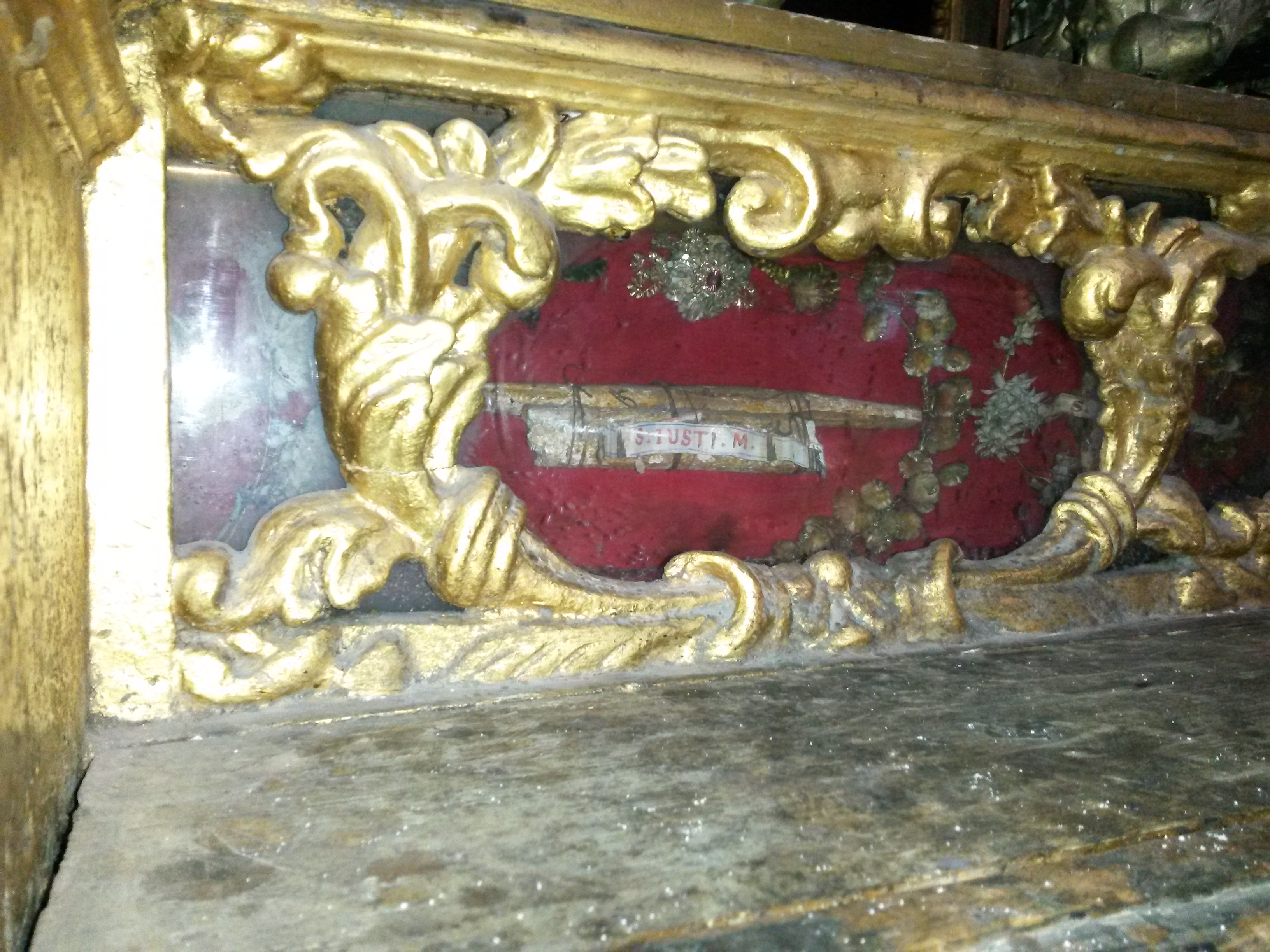|
Dialogue With Trypho
The ''Dialogue with Trypho'', along with the First and Second Apologies, is a second-century Christian apologetic text, usually agreed to be dated in between AD 155-160. It is seen as documenting the attempts by theologian Justin Martyr to show that Christianity is the new law for all men, and to prove from Scripture that Jesus is the Messiah.''Reading the Old Testament with the Ancient Church: Exploring the Formation of Early Christian Thought''; by Ronald E. Heine (Sep 1, 2007) pages 48-52 The ''Dialogue'' utilizes the literary device of an intellectual conversation between Justin and Trypho, a Jew. The concluding section propounds that the Christians are the "true" people of God. Identity of Trypho The identity of Trypho as Rabbi Tarfon has been proposed, but many Jewish scholars do not accept this notion.Claudia Setzer, ''Jewish Responses to Early Christians'' (Nov 1, 1994) , p. 215 They instead consider Trypho a fictional character invented by Justin for his literary pur ... [...More Info...] [...Related Items...] OR: [Wikipedia] [Google] [Baidu] |
Justin Martyr
Justin, known posthumously as Justin Martyr (; ), also known as Justin the Philosopher, was an early Christian apologist and Philosophy, philosopher. Most of his works are lost, but two apologies and a dialogue did survive. The ''First Apology of Justin Martyr, First Apology'', his most well-known text, passionately defends the morality of the Christian life, and provides various ethical and philosophical arguments to convince the Roman emperor Antoninus Pius to abandon the persecution of the Church. Further, he also indicates, as Augustine of Hippo, St. Augustine would later, regarding the "true religion" that revealed itself as Christianity, that the "seeds of Christianity" (manifestations of the Logos (Christianity), Logos acting in history) actually predated Christ's Incarnation (Christianity), incarnation. This notion allows him to claim many historical Greek philosophers (including Socrates and Plato), in whose works he was well studied, as Virtuous pagan, unknowing Chris ... [...More Info...] [...Related Items...] OR: [Wikipedia] [Google] [Baidu] |
Isaac
Isaac ( ; ; ; ; ; ) is one of the three patriarchs (Bible), patriarchs of the Israelites and an important figure in the Abrahamic religions, including Judaism, Christianity, Islam, and the Baháʼí Faith. Isaac first appears in the Torah, in which he is the son of Abraham and Sarah, the father of Jacob and Esau, and the grandfather of the Twelve Tribes of Israel, twelve tribes of Israel. Isaac's name means "he will laugh", reflecting the laughter, in disbelief, of Abraham and Sarah, when told by God that they would have a child., He is the only patriarch whose name was not changed, and the only one who did not move out of Canaan. According to the narrative, he died aged 180, the longest-lived of the three patriarchs. Recent scholarship has discussed the possibility that Isaac could have originally been an ancestor from the Beersheba region who was venerated at a sanctuary. Etymology The anglicized name "Isaac" is a transliteration of the Hebrew language, Hebrew name () whic ... [...More Info...] [...Related Items...] OR: [Wikipedia] [Google] [Baidu] |
Tertullian
Tertullian (; ; 155 – 220 AD) was a prolific Early Christianity, early Christian author from Roman Carthage, Carthage in the Africa (Roman province), Roman province of Africa. He was the first Christian author to produce an extensive corpus of Latin literature, Latin Christian literature and was an early Christian apologetics, Christian apologist and a polemicist against Heresy in Christianity, heresy, including contemporary Christian Gnosticism. Tertullian was the first theologian to write in Latin, and so has been called "the father of Latin Christianity", as well as "History of Christian theology, the founder of Western theology". He is perhaps most famous for being the first writer in Latin known to use the term ''trinity'' (Latin: ''trinitas''). Tertullian originated new theological concepts and advanced the development of early Church doctrine. However, some of his teachings, such as the Subordinationism, subordination of God the Son, the Son and Holy Spirit in C ... [...More Info...] [...Related Items...] OR: [Wikipedia] [Google] [Baidu] |
Theophilus Of Antioch
:''There is also a Theophilus of Alexandria'' ( 412) Theophilus of Antioch () was Patriarch of Antioch from 169 until 183. He succeeded Eros of Antioch 169, and was succeeded by Maximus I 183, according to Henry Fynes Clinton, but these dates are only approximations. His death probably occurred between 183 and 185. His writings (the only remaining being his apology to Autolycus) indicate that he was born a pagan, not far from the Tigris and Euphrates, and was led to embrace Christianity by studying the Holy Scriptures, especially the prophetical books. He makes no reference to his office in his existing writings, nor is any other fact in his life recorded. Eusebius, however, speaks of the zeal which he and the other chief shepherds displayed in driving away the heretics who were attacking Christ's flock, with special mention of his work against Marcion. He made contributions to the departments of Christian literature, polemics, exegetics, and apologetics. William Sanday de ... [...More Info...] [...Related Items...] OR: [Wikipedia] [Google] [Baidu] |
Athenagoras Of Athens
Athenagoras (; ; c. 133 – c. 190 AD) was a Father of the Church, an Ante-Nicene Christian apologist who lived during the second half of the 2nd century of whom little is known for certain, besides that he was Athenian (though possibly not originally from Athens), a philosopher, and a convert to Christianity. Athenagoras' feast day is observed on 24 July in the Eastern Orthodox Church. History In his writings he styles himself as "Athenagoras, the Athenian, Philosopher, and Christian". There is some evidence that he was a Platonist, as Alexander Wilder puts it: “Pantaenus, Athenagoras and Clement were thoroughly instructed in the Platonic philosophy, and comprehended its essential unity with the Oriental systems”. A convert to Christianity, Athenagoras went to Alexandria and taught at what would become its celebrated Christian academy. Work and writings Although his work appears to have been well-known and influential, mention of him by other early Christian apologi ... [...More Info...] [...Related Items...] OR: [Wikipedia] [Google] [Baidu] |
Eusebius
Eusebius of Caesarea (30 May AD 339), also known as Eusebius Pamphilius, was a historian of Christianity, exegete, and Christian polemicist from the Roman province of Syria Palaestina. In about AD 314 he became the bishop of Caesarea Maritima. Together with Pamphilus, Eusebius was a scholar of the biblical canon and is regarded as one of the most learned Christians during late antiquity. He wrote the ''Demonstrations of the Gospel'', '' Preparations for the Gospel'' and ''On Discrepancies between the Gospels'', studies of the biblical text. His work '' Onomasticon'' is an early geographical lexicon of places in the Holy Land mentioned in the Bible. As "Father of Church History" (not to be confused with the title of Church Father), he produced the ''Ecclesiastical History'', ''On the Life of Pamphilus'', the ''Chronicle'' and ''On the Martyrs''. He also produced a biographical work on Constantine the Great, the first Christian Roman emperor, who was ''Augustus'' between A ... [...More Info...] [...Related Items...] OR: [Wikipedia] [Google] [Baidu] |
Methodius Of Olympus
Methodius of Olympus () (died c. 311) was an early Christian bishop, ecclesiastical author, and martyr. Today, he is honored as a saint and Church Father; the Catholic Church commemorates his feast on June 20. Life Few reports have survived on the life of this first systematic opponent of Origen; even these short accounts present many difficulties. Eusebius does not mention him in his ''Church History'', probably because he opposed various theories of Origen, thus Jerome provides the earliest accounts of him. According to him, Methodius suffered martyrdom at Chalcis at the end of the newest persecution, i.e., under Diocletian, Galerius or Maximinus Daia. Although he then adds, "that some assert", that this may have happened under Decius and Valerian a, this statement (''ut alii affirmant''), adduced even by him as uncertain, is unlikely, given that Methodius also wrote against the Neoplatonic philosopher Porphyry (234–305). The location of Methodius's episcopal see is a ma ... [...More Info...] [...Related Items...] OR: [Wikipedia] [Google] [Baidu] |
Tatian
Tatian of Adiabene, or Tatian the Syrian or Tatian the Assyrian, (; ; ; ; – ) was an Assyrian Christian writer and theologian of the 2nd century. Tatian's most influential work is the Diatessaron, a Biblical paraphrase, or "harmony", of the four gospels that became the standard text of the four gospels in the Syriac-speaking churches until the 5th-century, after which it gave way to the four separate gospels in the Peshitta version. Life Concerning the date and place of his birth, little is known beyond what Tatian tells about himself in his ''Oratio ad Graecos'', chap. xlii ('' Ante-Nicene Fathers'', ii. 81–82): that he was born in "the land of the Assyrians", scholarly consensus is that he died , perhaps in Adiabene. He travelled to Rome, where he first encountered Christianity. During his prolonged stay in Rome, according to his own representation, his abhorrence of the pagan cults sparked deep reflections on religious problems. Through the Old Testament, he wrote, ... [...More Info...] [...Related Items...] OR: [Wikipedia] [Google] [Baidu] |
Resurrection Of The Dead
General resurrection or universal resurrection is the belief in a resurrection of the dead, or resurrection from the dead ( Koine: , ''anastasis onnekron''; literally: "standing up again of the dead") by which most or all people who have died would be resurrected (brought back to life). Various forms of this concept can be found in Christian, Islamic, Jewish, Samaritan and Zoroastrian eschatology. Rabbinic Judaism and Samaritanism There are three explicit examples in the Hebrew Bible of people being resurrected from the dead: * The prophet Elijah prays and God raises a young boy from death (1 Kings 17:17–24). * Elisha raises the son of the Shunammite woman (2 Kings 4:32–37); this was the very same child whose birth he previously foretold (2 Kings 4:8–16). * A dead man's body that was thrown into the dead Elisha's tomb is resurrected when the body touches Elisha's bones (2 Kings 13:21). While there was no belief in personal afterlife with reward or punishment i ... [...More Info...] [...Related Items...] OR: [Wikipedia] [Google] [Baidu] |
Soul Sleep
Christian mortalism is the Christian belief that the human soul is not naturally immortal and may include the belief that the soul is "sleeping" after death until the Resurrection of the Dead and the Last Judgment, a time known as the intermediate state. "Soul sleep" is often used as a pejorative term, so the more neutral term "mortalism" was also used in the nineteenth century, and "Christian mortalism" since the 1970s. Historically the term psychopannychism was also used, despite problems with the etymology and application. The term thnetopsychism has also been used; for example, Gordon Campbell (2008) identified John Milton as believing in the latter. Christian mortalism stands in contrast with the traditional Christian belief that the souls of the dead immediately go to heaven, or hell, or (in Catholicism) purgatory. Christian mortalism has been taught by several theologians and church organizations throughout history while also facing opposition from aspects of Christian o ... [...More Info...] [...Related Items...] OR: [Wikipedia] [Google] [Baidu] |




